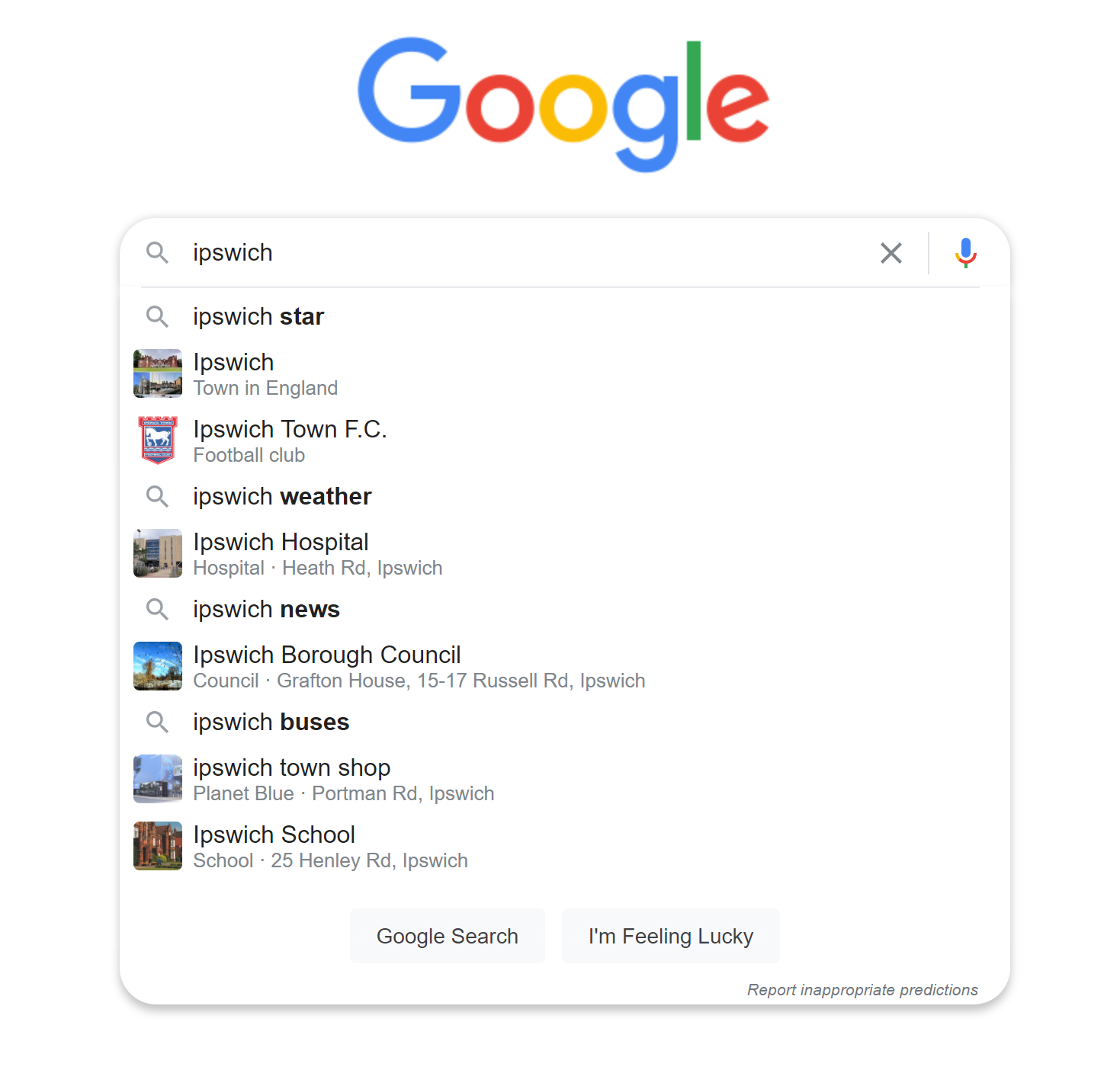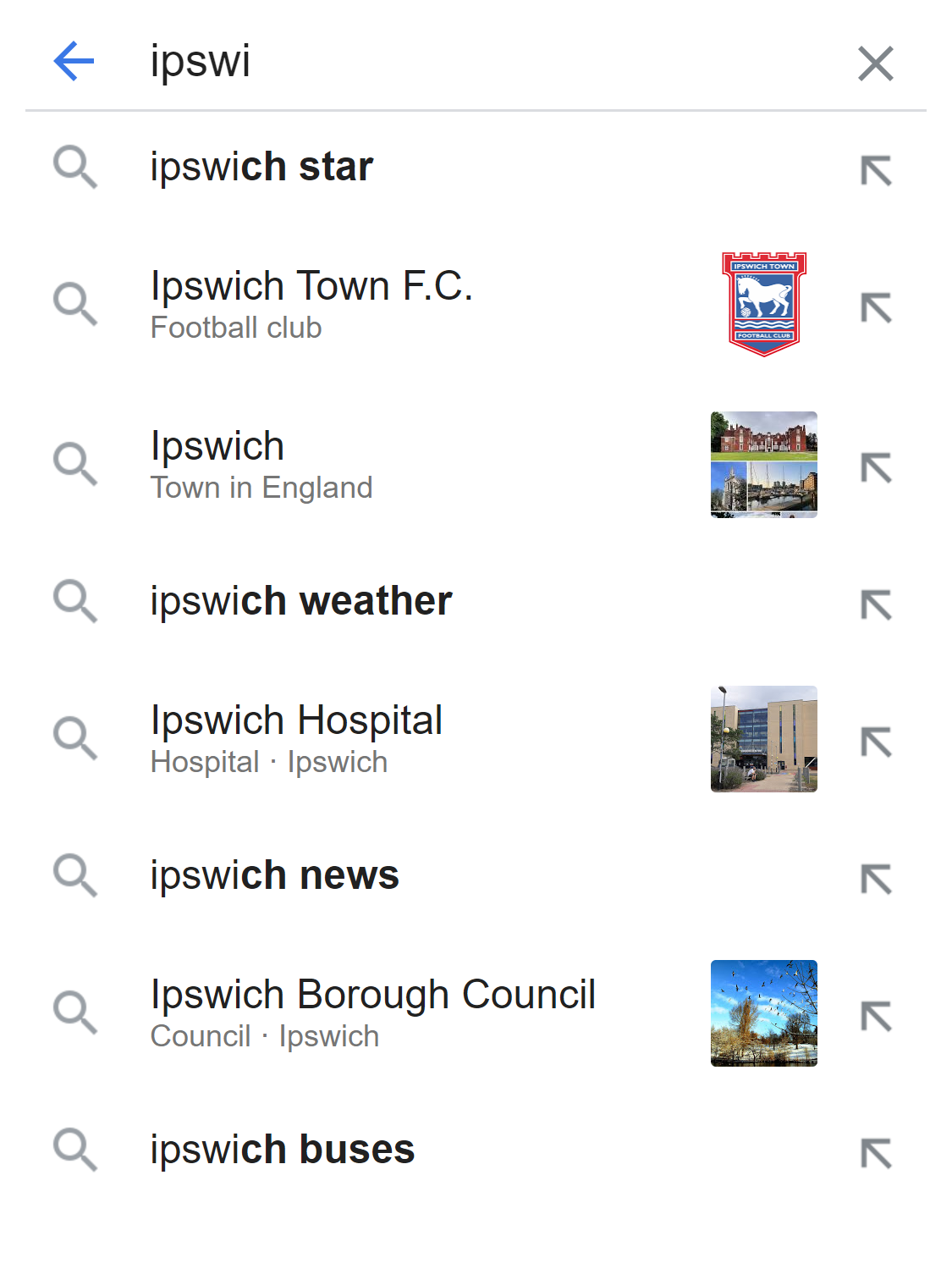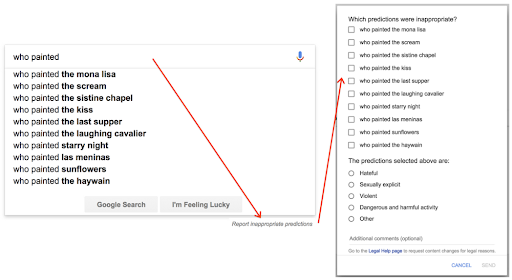Google autocomplete, the preview of commonly searched terms that shows on the Google search pages and in the Google Chrome search bar, displays a number of frequently searched for queries that are related to the words that you type into the search box. The feature used to be called Google Suggest.
On the one hand, this saves time, and on the other, it gives the user the opportunity to gain an insight into, and perhaps even inspiration from, the most frequent search queries made by other users.


Google Suggest was available since 2009. The suggestions that are displayed when typing are based on previous searches and tend to be concerned with the same subject matter. In addition, if the user has a Google account and allows their search history to be saved, the suggestions can be personalised based on one’s past search queries. This makes it easier to find previously seen, relevant results again.
In an article on its blog from 2018, Google provides a superficial amount of information with regard to how Autocomplete works. Google makes a point of describing these results as predictions, as opposed to suggestions.
How does Google Autocomplete work?
The completions are based on algorithms that rely on a number of factors, such as the frequency and the topicality of the search terms. It also draws on the current search input, the individual user’s search history and other trending topics.
Google gives details on the autocomplete feature on this page.
If no completions are displayed, it may be because the search term that has been entered is new or has too little in the way of related traffic. Suggestions will not be displayed if they violate Google’s guidelines.
Advantages of Google Autocomplete in Search Engine Optimisation
Autocomplete allows users to quickly find similar and common search queries to their own search queries. This offers enormous added value if you are undertaking keyword research, because it gives people access to data that has been directly drawn from other Google users.
What could go wrong with Autocomplete?
Unfortunately, quite a lot! Google autocomplete struggles heavily with hurtful, defamatory and inflammatory Autocomplete results. This is also the reason why no Suggest suggestions are displayed for many search queries with the schema “[person/ethnic/religious group] is/are …”.
In addition, there is an option to use the “Report inappropriate completions” link to tell Google that an Autocomplete result does not belong in the list.

Conclusion
Google Autocomplete is a very handy predictor of what you may want to know as a Google user. For the purposes of SEO, Autocomplete is very useful, insofar as it allows you to quickly see a number of search terms that are related to your current search term – terms that can then be used for your keyword research.